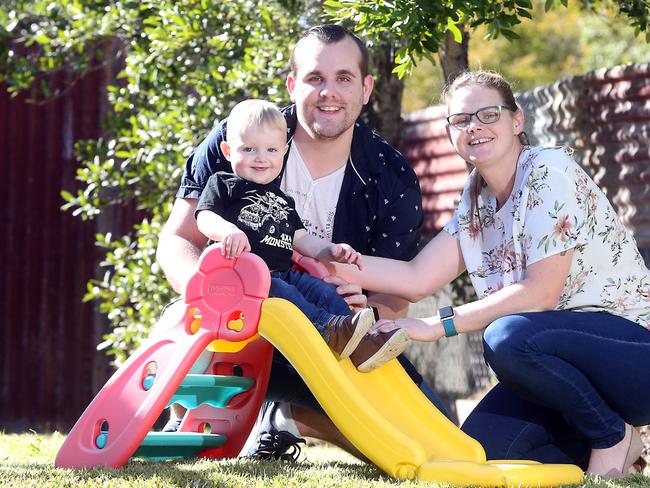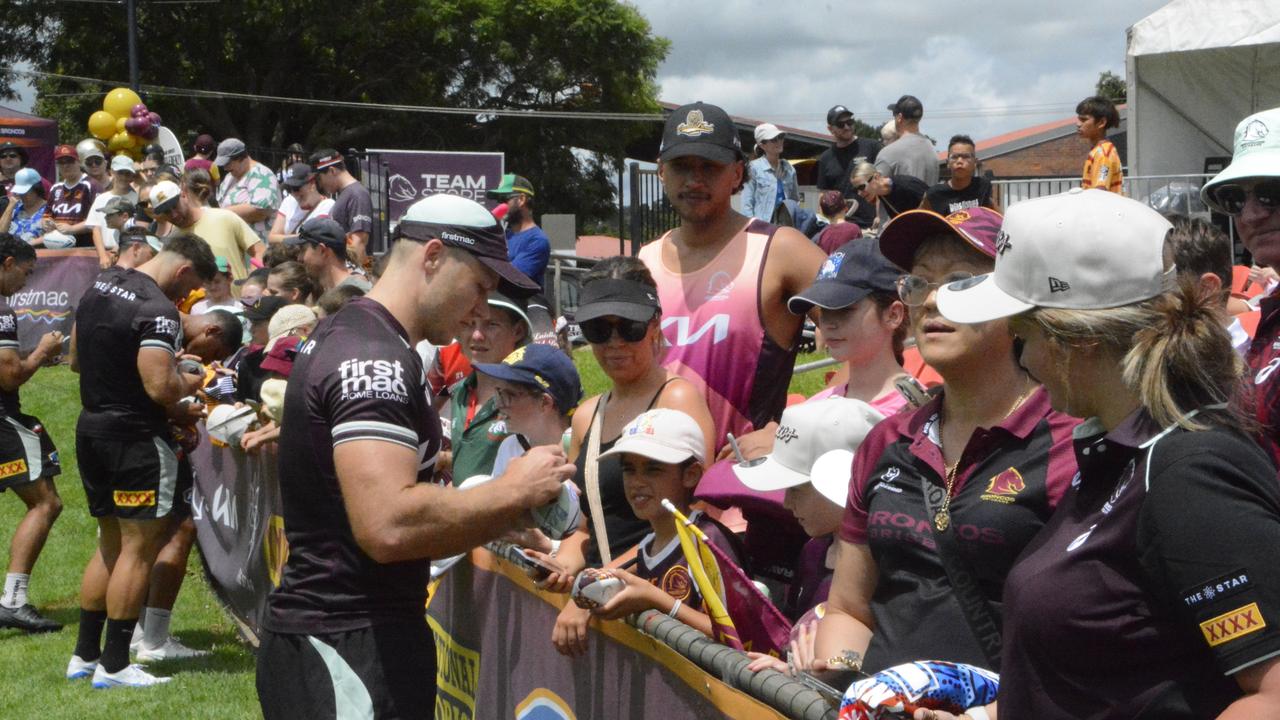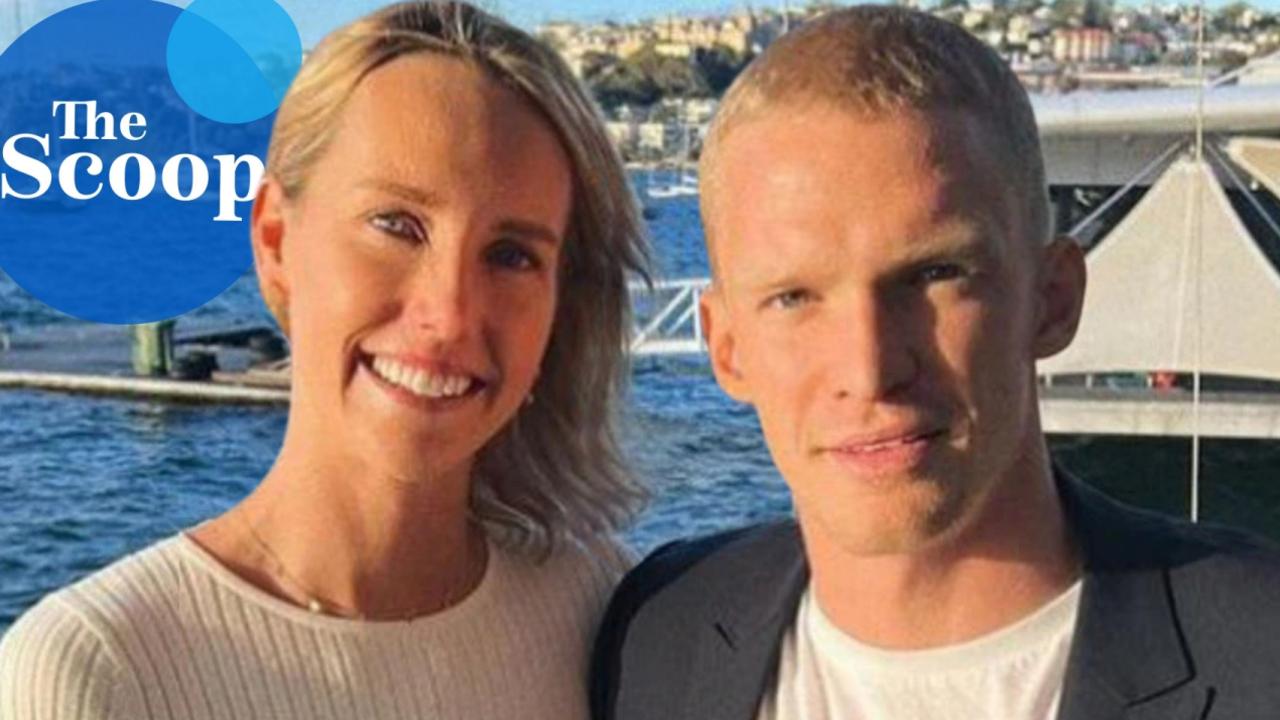First-time mum in biggest ever donation to breastmilk bank
Karen Christiansen had so much breastmilk in her freezer at one stage, she thought about pouring it down the sink. Here’s how much she donated to help fragile newborns.

QLD News
Don't miss out on the headlines from QLD News. Followed categories will be added to My News.
FIRST-TIME mum Karen Christiansen jokes about feeling “like a cow” after being named the Queensland Milk Bank’s most prolific breastmilk donor, supplying 240 litres to help other people’s babies.
The 26-year-old had so much breastmilk in her freezer at one stage — even after feeding her son Zavier Hamilton — she thought about pouring it down the sink.
But then someone told her she could donate her leftovers to the Royal Brisbane and Women’s Hospital-based milk bank to feed some of Queensland’s most fragile newborns.
Qld exporting breastmilk to Tasmania
Qld milk bank calls for more donors
“It feels good to know that I’ve helped those babies to give them a better start in life,” the Ipswich Mum said. “My parents are really proud of me. But to be honest, I don’t feel like it’s a massive accomplishment. I just feel like I’ve done something a normal person would do. It didn’t feel like it was a hassle.”
Ms Christiansen, who will marry her partner Zak Hamilton in September, donated to the milk bank from when Zavier was four months old while also working full-time as a personal carer.
She started expressing breast milk when Zavier, now 15 months, had trouble latching as a newborn.
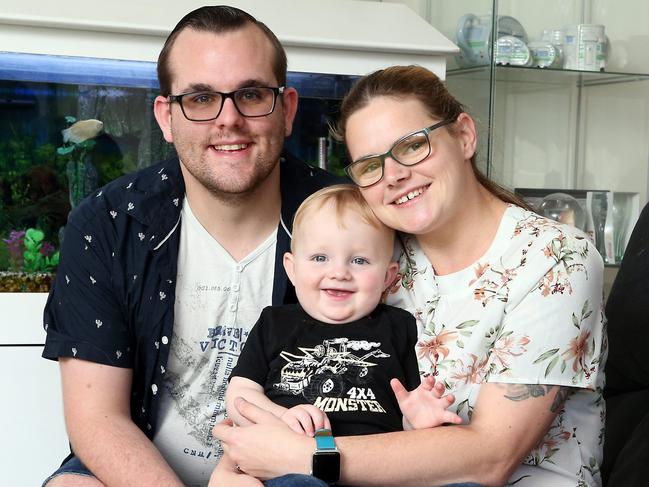
“Once he was latched, I had excess milk and I couldn’t feel comfortable so I just kept pumping,” Ms Christiansen said.
Although a mum’s own breastmilk is always considered the best option, many women who give birth to extremely premature babies struggle to produce enough.
RBWH director of neonatology Pieter Koorts said studies had found feeding the tiniest babies a mix of donated breast milk and probiotics, instead of formula, improved survival rates.
The combination boosts their gut health and cuts their chances of developing necrotising enterocolitis, a serious condition in which parts of the bowel die. It also reduces infection risk.
Dr Koorts said the RBWH milk bank supplied breast milk to 14 hospitals, most of them in Queensland, but one as far south as Hobart.
He said more than 740 women had donated about 7000 litres of breastmilk to the Queensland Milk Bank since it opened in 2012.
“Some donors with large amounts make a huge difference but the ones who donate a couple of litres of breastmilk make a big difference too,” he said. “We celebrate the big donors, and the little donors, all of them. We would be nowhere without our donors. They make everything we do possible.”
Dr Koorts said the tiniest premature babies were fed about 1ml of breastmilk every three hours, or 8ml a day, but that increased as they grew.
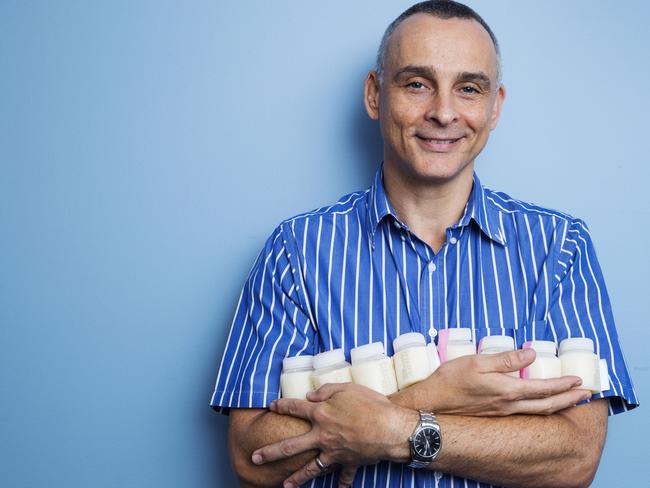
He said sending donated breastmilk to special care nurseries in regional hospitals reduced the need for some premature babies to be transferred to larger facilities, taking pressure off retrieval services and on families having to relocate.
“If the babies don’t have their own mother’s milk, without donor breastmilk, the other alternative is formula which is just not tolerated as well,” Dr Koorts said.
He said the milk bank could take breastmilk up to three months after it was frozen.
“It starts to lose its benefits after that,” he said.
Ms Christiansen had a blood test every three months while she was donating to the milk bank and the milk is screened and pasteurised to ensure its safe.
To support the milk bank, donate to the RBWH Foundation at rbwhfoundation.com.au
To become a milk bank donor, visit the Queensland Milk Bank Facebook page.
Who can become a breast milk donor?
•Mums who are breastfeeding or expressing for their own babies and have an abundant supply of milk, surplus to their own baby’s needs.
•Mums need to be in good health.
•Some medications may exclude women from donating. These can be discussed with milk bank staff.
•Blood tests are required to ensure infection or viruses are not present that can be passed through the milk.
